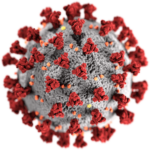 Vaccines won’t mean an immediate return to life as you knew it, a New York Times article (republished in the Seattle Times here) says.
Vaccines won’t mean an immediate return to life as you knew it, a New York Times article (republished in the Seattle Times here) says.
Getting vaccinated against Covid-19 will make you safer, and offer some relief from cabin fever, but there will still be “several reasons for staying masked and cautious as you start your post-vaccine life,” the article says.
First, vaccines “don’t offer perfect protection.” Second, whether vaccinated people can spread Covid-19 remains unknown. Third, the virus is likely to keep spreading rapidly “until a large majority of the population is vaccinated or has survived a natural infection.”
So, people need to think in terms of “moving forward” instead of “getting back to normal,” according to one expert, who advises thinking about “post-vaccine life in several phases.”
In early stages, when some people are “fully vaccinated,” i.e. “a week or two after the second dose,” and you’re one of them, “but most others aren’t yet, their lives probably shouldn’t change very much, experts say.” Vaccinated people “should still wear masks and avoid large groups and indoor gatherings … for both their health and the health of others, experts said.” Half of epidemiologists surveyed by the New York Times told the paper “they would wait until at least 70% of the population was vaccinated” before changing their behavior.
Once you and people you want to see are all vaccinated, socializing with them should be safer, the experts said, but traveling and congregating in large groups of people you don’t know will still be. An epidemiologist at Washington State University said at that point he would begin meeting with students again, but “wouldn’t fly on vacation or go to a movie theater,” because with 95% effectiveness, “there’s always a chance the vaccine isn’t working for you.”
Because the population will be vaccinated in stages, with some people receiving priority over others, many people will face a situation where family members — especially elderly parents or grandparents — get vaccinated before they do. That will pose some tough choices. Socializing with them “would certainly be safer than it is now,” but there would still be some risk, so it “may not be worth it.”
Once “a large majority”of the population has been vaccinated, “it should be much safer to move around” in the broader community, but that’s still months away at best, and with a third to half of people saying they won’t get vaccinated that time may not come at all. If it does, that’s when it may be safe to eat at indoor restaurants, attend parties, ride buses, and conduct holiday family gatherings. But many people aren’t waiting. Last week and this, they’re flocking to airports, getting together with family and friends, and a few weeks from now some will be dead.
“Any public health approach that relies solely on personal responsibility is doomed to fail,” a Harvard epidemiologist noted (here), and it certainly looks that way based on actual experience, but efforts by responsibility-minded public officials (few Republicans among them) have been met with anger, threats, and defiance in many places. It’s not possible those people are ignorant of the risks they’re taking with themselves and others; maybe they’re just tired, worn out, can’t take it anymore, or don’t give a damn.
This is what it’s like in places (such as Los Angeles County and parts of Florida) that already have run out of ICU beds:
(About a week ago, I posted a map showing localities that are running out of ICU capacity here. Since then, the situation has only been getting worse.)
Other stories in other media outlets have echoed what the New York Times story said. Back in August, months before vaccines began to arrive, USA Today predicted that even after effective COVID-19 vaccines are “routinely available,” things won’t return to normal, and “life will likely never be the same – particularly for people over 60.” That article (read it here) sets forth in detail a long list of things — from greater use of telemedicine to driving instead of flying and design changes to public restrooms.
Looking ahead, while an apocalyptic disaster-movie virus capable of wiping out humanity belongs in the realm of science fiction fantasy (I wrote about that here; for a realistic view, read this article here), new viruses are emerging all the time, the Covid-19 vaccines might not work against the next one, and this could happen again. The odds go up as the planet gets crowded with more humans and more of them travel and interconnect with each other.
The current disaster didn’t have to happen, or at least, not be so severe. Most other countries fared better than we did, because they weren’t as determined to sacrifice common sense to misguided notions of “freedom.” The experience of countries like Taiwan (see what I wrote here) and New Zealand showed Covid-19 could be controlled, if the willingness was there.
 There’s also some question whether mass infection was “dangerous incompetence” (see article here) or a conscious policy of the Trump administration (see story here), but Trump, GOP governors, and other Republican politicians obviously clearly did prioritize business profits over saving lives. Governments are empowered to make such life-and-death choices; when governments go to war, they consciously, overtly, and intentionally decide to trade the lives of their citizens for a policy goal. I do think that happened here.
There’s also some question whether mass infection was “dangerous incompetence” (see article here) or a conscious policy of the Trump administration (see story here), but Trump, GOP governors, and other Republican politicians obviously clearly did prioritize business profits over saving lives. Governments are empowered to make such life-and-death choices; when governments go to war, they consciously, overtly, and intentionally decide to trade the lives of their citizens for a policy goal. I do think that happened here.
But some of America’s soaring casualties from Covid-19 were utterly pointless. Wearing a mask in public doesn’t close any business, cost anyone their job, or prevent any social gatherings. Masks aren’t a 100% effective preventative, but medical professionals who know what they’re talking about tell us that masks are the best tool we have for containing Covid-19s spread, even better than vaccines, and it costs nothing to wear one. The resistance to masks is inexplicable.
Something to keep in mind going forward is that if health authorities can’t get people to wear masks, they won’t get them to get vaccinated, either. Surveys show something like a third to half of the U.S. public won’t get vaccinated. If so, there will be no herd immunity, Covid-19 will stay with us, and there will be no normal to return to.
Meanwhile, Mother Jones offers some tips on how to deal with anti-maskers here. Hopefully you aren’t an anti-masker, anti-vaxxer, or one of those millions of people traveling during this holiday week; if you are, you may not be reading this blog next year.